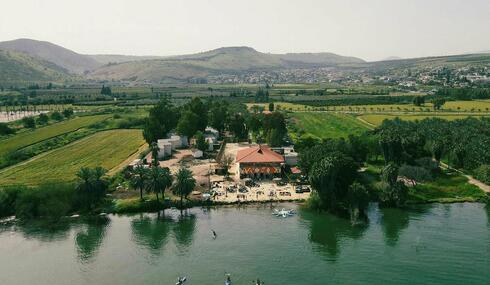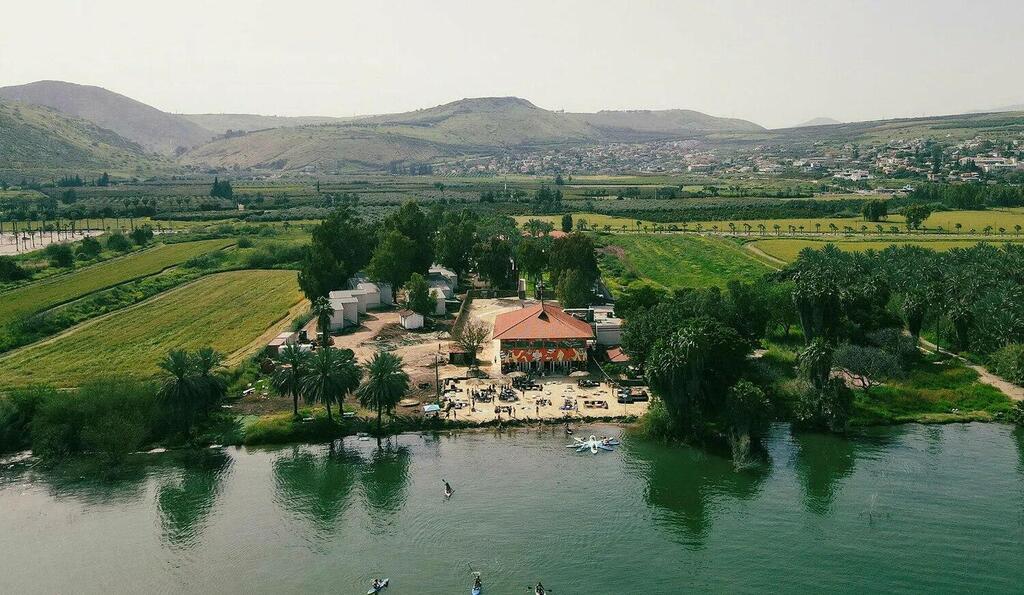
Selina Israel ceases operations after global hospitality chain crumbles
The collapse of the once-promising brand leaves a trail of unpaid debts and abandoned hotels across Israel.
At the end of 2022, the Selina hospitality chain went public on Wall Street through a merger with a Special Purpose Acquisition Company (SPAC) at a value of $1.2 billion. Founded and managed by Israelis Daniel Rudasevski and Rafi Museri, Selina was one of the hottest brands in the market, presenting investors with plans for a novel hospitality experience. However, its performance did not meet expectations, and within less than two years, the chain fell into insolvency. By the end of August, all its assets were sold.
It has now emerged that Selina Israel, the subsidiary operating 14 accommodation sites in Israel, has ceased its activities. The Gabay real estate company, which rents a property on Migdal Beach at the Sea of Galilee to Selina, announced over the weekend that it is working to evict Selina due to a breach of their lease agreement. Selina had issued checks that were not honored.
On Sunday, Gabay reported that Selina Israel has informed them that "Selina Israel and its subsidiaries are immediately ceasing the provision of management services to all hotels, including the hotel operated on the company's property on Migdal Beach," and that "Selina Israel is forced to announce the cessation of its operations." Gabay intends to take over the management of the hotel and employ Selina Israel's staff in its place.
Selina's difficulties began even before its public offering. The company, founded in 2014, recorded losses each year since its inception, including a $198 million loss in 2022, $186 million in 2021, and $139 million in 2020. In its reports for the first half of 2023, Selina reported a loss of $46 million, a reduction of about 50% compared to the same period the previous year. Over the past year, the company closed hotels, halted the opening of new ones, and laid off more than 350 employees worldwide.
Despite these efforts, Selina's board announced in July that the company had no chance of avoiding insolvency, and its business was transferred to trustees who put its assets up for auction. By the end of August, all 100 Selina hostels across 22 countries were sold to the Singaporean hospitality company Collective Hospitality.
Selina Israel's debts to tax authorities for hotel rentals amount to NIS 540,000. Gabay also provided Selina with loans for property adjustments, valued at NIS 8.8 million as of the end of June, following a value reduction of NIS 2.5 million during the second quarter due to Selina's financial troubles.
Besides Gabay, the Hagag Group, a public company exposed to Selina's financial difficulties, is also affected. In its second-quarter 2024 report, Hagag stated it is exposed to Selina's debts up to 45 million shekels, including 7 million shekels in existing debt and 38 million shekels in future obligations. Hagag also reported having approached Selina with a demand for payment but estimates that the chances of repayment are low.
In addition to the debt issue, Hagag recorded negative estimates due to Selina's difficulties, totaling approximately 29 million shekels, including 8.5 million shekels in adjustments and 6.4 million shekels in credit losses reported in the first half of the year. This amount adds to an additional NIS 10 million retired in previous periods and half of the value of a $2 million loan provided to Selina’s controlling owners.
Selina and Hagag entered into an agreement at the end of 2021, stipulating that Hagag would purchase or adapt up to 30 buildings for Selina’s use as hotels, with an investment of approximately 580 million shekels. In return, Selina would pay rent and share 20% of the profits from those hotels. By the end of 2023, Hagag had purchased three properties for Selina’s hotel operations, investing NIS 65 million, including a hotel in Metula that has not been operating since the beginning of the war. Hagag had already reduced valuations by NIS 5 million last year. Additionally, Hagag invested 40 million shekels in adjustment work for eight other Selina properties not owned by Hagag, deducting an additional 5 million shekels from the value of these investments.














